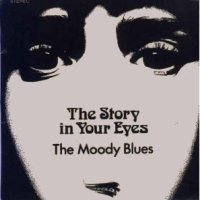Background
"The Story in Your Eyes" was the Moody Blues' last single to feature the Mellotron as it would be supplanted by the Chamberlin, a similar instrument, in time for their next album, Seventh Sojourn . The SACD release of the album Every Good Boy Deserves Favour contains a version of "The Story in Your Eyes" that has the Mellotron in a more dominant role.
Allmusic critic Lindsay Planer described it as "one of the Moody Blues’ edgier pieces" with "decidedly probing observational lyrics." [1] Cashbox described it as a "scorching rocker" that is "certain to make quite an impact in underground and pop markets." [2] Record World said it was a "top-notch" song "in [the band's] big production rock and roll tradition." [3]
Classic Rock History critic Brian Kachejian rated it as the Moody Blues' 2nd greatest song, saying that "The song’s classic opening guitar lick is easily one of the most recognizable in classic rock history" and praising the vocal performances, the lead guitar playing and the Mellotron playing. [4] Ultimate Classic Rock critic Nick DeRiso rated it as the Moody Blues' 3rd greatest song. [5]
The main riff of the song resembles the later section of "MacArthur Park," by Jimmy Webb, an international hit single for Richard Harris in 1968. Hayward covered "MacArthur Park" on his 1989 solo album, Classic Blue. [6]
This page is based on this
Wikipedia article Text is available under the
CC BY-SA 4.0 license; additional terms may apply.
Images, videos and audio are available under their respective licenses.
